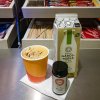JUMP TO
Tooth decay and poor oral health are rapidly becoming one of the major health problems in our so-called modern society. In this article, I’ll discuss some of the causes, but I’ll also focus on real world solutions for improving your oral health as well as general health (since they are both connected).
The link between oral health and general health
I truly believe that oral health is an expression of your body’s general health. That is why, in this article, you’ll learn that having oral health problems (cavities, gingivitis, parodontitis, extractions, root canals, etc) is in fact an indication of other health issues somewhere in your body.
I’m not sure how many people in their 20s or 30s still have all their teeth intact. The fact is, these days even kids get cavities and have teeth extracted. Sadly, we now have special dental clinics designed to accommodate kids and teens. That is how bad the situation is and it was unprecedented when I was a kid, back in the 80s and 90s. I lived in Romania at the time, but my current observations are based on what I’ve seen in recent years in Denmark, Norway, Germany and Romania.
Talking about my experiences with dentists, I had my first (and only) tooth pulled out when I was around 21-22 yo and it made me really sad because, until that intervention, I NEVER had any teeth related problems. Let me say it again: I never had any kind of teeth related problems until I was 21 yo. Not even a toothache, nothing! My teeth were not looking perfect; they were not the sort of teeth that you see in movies, but I had no cavities whatsoever. I’m 40 yo now and I haven’t had another tooth pulled out, but I have 4 additional root canals which I’m not proud of (more about this later).
Back to this article, I’ll share with you all that I’ve learned through the years in terms of protecting your health by using natural solutions, as well as understanding what your dentist doesn’t tell you in terms of oral health and prevention.
How tooth decay evolves
Let’s get back to tooth decay because, once one develops tooth decay, the problems follow one by one. This is how tooth decay sadly evolves into a huge oral health issues, if left untreated at the real cause:
- Everything starts with a bit of tooth decay on the enamel.
- Most dentists will panic (yes, panic!) and will want to put in a “small” filling.
- If your oral health will decline some more (more on this later), you’ll soon need a bigger filling.
- If the decline continues even more, you’ll eventually get some type of pain in the tooth, so your dentist will “suggest” a root canal.
- After the root canal procedure, the tooth will basically be dead and will soon become rotten. Since the tooth was not pulp now, it is basically unprotected from the inside out through blood supply, as a normal tooth should be. This will make the root canal become rotten in a matter of years (depending on how strong your immune system is).
- All root canal procedures will end-up sooner or later with some sort of infection at the base of the tooth. This happens since the root of the tooth will remain there after the initial root canal procedure, and will simply become infected.
- Sooner or later, a crown or an implant will follow. But let’s not forget that implants require tooth extraction.
So you see, even if you get to the dentist in time, when your cavity is still in its initial stage, you won’t have many chances to solve the problem, if your dentist doesn’t advise on addressing the root cause of your problems.
Now, the real problem is that your dentist won’t tell you that you have to change your way of living (diet, sleep, stress, etc) because s/he doesn’t know anything about holistic health.
You see, dentists and in fact all medical doctors, are not trained in holistic health and the impact that nutrition, sleep, stress, toxins, movement or meditation may have on the body. Your dentist will tell you that you need to brush your teeth more, and to come back for more dental visits, but s/he won’t tell you anything or very little about lifestyle changes.
Stress and oral health
When I had my tooth pulled out at 21-22 yo I was stressed, I wasn’t sleeping well and I was addicted to sugar. For the next 6 years I would get several new fillings but it was until later on, when I developed very serious health issues, that I realized the importance of lifestyle changes on my health and dental health in particular.
It took me 6 or 7 years from the moment that I had my tooth pulled to realize that I was living in a constant state of stress, eating too much sugar, not sleeping right and so on. It took me another 4 or 5 years to learn new habits and to correctly implement all these changes into a new healthy lifestyle, improving my health and my life in the process.
When it comes to understanding oral health (and health in general), you’ll have to think in terms of stress. There are 3 types of stressors that we as humans experience – physical, chemical and emotional stress. In order to improve your health (oral health is part of general health) you’ll have to address all these 3 types of stressors (physical, chemical and emotional).
Getting free of tooth decay is not only about what you’re eating, but also about making lifestyle changes in all aspects of your life.
It’s true that food plays a big role in oral health and it may even be the easiest thing that you can do to improve oral health. Just remember that food isn’t the only factor involved in oral health, and sometimes stress can turn out to be of much more importance.
How to improve oral health
I’ve put together a list of the factors that are linked to oral health. Every time you make healthy choices, you move one step closer to that perfect ideal oral health. Every time you make an unhealthy choice, you move one step in the other direction. I’m not saying that we should always make only perfect choices, I’m just saying that we should be aware of the choices we make, and to balance everything with a conscious attitude.
Here is a complete list of the factors that worked for me in my goal of improving oral health:
Live in love instead of fear
Learn how to live in love instead of focusing on the fear of what may happen. Love yourself, love your body, and learn to appreciate the world with everything that it has to offer. Learn the way of acceptance and do not judge people or situations.
Mindfulness is not something that we can learn from one day to the next, but we can start by shifting our awareness to the present moment. Focus on every present moment, instead of repeating the same thoughts and memories from the familiar past. Know that you are the creator of your life in the present moment. You are beautiful, whole and perfect!
Why love yourself? Because love equals all those growth hormones that you release as soon as you feel whole. On the other hand, living fear equals a constant state of anticipation and stress which leads to the breakdown of your body. This is purely on the physical plane, but keep in mind that we also have a spiritual plane but we won’t get into this whole different way of seeing things here.
Stress is a huge factor
Emotional stress has a huge impact on general health, and oral health is no exception. Living in chronic stress, in anticipation of the next problem, constantly analyzing the world from a state of fear, can be the number one factor for all kinds of diseases (and certainly contributes to poor oral health).
How do you feel towards your work, family, or business? Do you feel tense all the time? How is your digestion? How do you feel about your problems? What kind of thoughts do you have? My point is this: focus on what you feel deep inside you and don’t try to cover your emotional problems with addictions. Stress cannot be covered-up and must be addressed at the root cause, otherwise the immune system will become weakened and disease will set in.
What is your carbs intake?
Chances are that, if you have cavities, your sugar intake is probably too big for your body to sustain a healthy life. Think of all the products that contain added sugar and carbs in general, in one form or another.
Putting too many carb-loaded products on your plate won’t leave much place for healthy fats like avocado, coconut or olives (and their derivative butters). Healthy fats should be your primary source of energy, not carbs. Eating is about balancing all the nutrients, about consuming real food that our ancestors used to consume. Focus on consuming real food that our ancestors used to consume, instead of sugar and refined carbs.
Grains are unhealthy
Learn to look at grains as what they are: mostly empty calories and insoluble fiber that is hard to digest, and lots of anti-nutrients (more on anti-nutrients in one of the sections below). Most grains are also sprayed with all kinds of chemicals (herbicides and pesticides), while most bread and pastry are prepared in factory environments using additives, preservatives and fillers. Grains are packed with empty carbs that will spike your blood sugar level, lowering your immune system and leading to inflammation in the body. Avoid!
Hydrogenated and oxidized fats (bad fats)
If you’re eating like the “normal” person, you’re probably taking in too many hydrogenated or oxidized fats. These bad fats are literally everywhere these days, in all packaged foods but also other processed “foods”. Stay away from all PUFA rich fats that come from refined seed oils or things like margarine, packaged foods, processed foods, fast food.
Are you consuming enough good fats?
Focus on healthy fats from avocado, coconut, olives, and all the oils that come from them. Nuts and seeds are also a great source of healthy fats, as well as healthy dairy products. Stay away from all those refined oils made from nuts and seeds.
Vitamins for bone health
Focus on consuming foods that are rich in vitamins involved in the bone creating process. The main vitamins involved in bone health (also oral health, since teeth are bones) are vitamins A, D, C and K2. Some of these (vitamin A, D and K2) are called fat soluble vitamins, since they need healthy fats in order to be transported and absorbed in the body.
Focus on minerals and vitamins
With respect to oral and bone health, you’ll need minerals like calcium, phosphorus, magnesium. My advice is to take in an assortment of vitamins and minerals from all kinds of foods, focusing on plants. Start by consuming all kinds of plants, mostly vegetables and greens in particular, while keeping sweet fruits to a minimum. Make sure to consume enough plants in raw or fermented form.
Always eat in a healthy way
Consume plenty of healthy fats as the big part of your meals, keeping protein on a medium level and carbs to minimum. Unless you really need them, for instance after a demanding exercise routine, and without spiking your insulin level, carbs should always be kept to a bare minimum.
Don’t eat too often
Forget about eating 3 meals a day and 2 snacks, as we’re advised by the mainstream media. Let time for your mouth saliva to clean all your teeth. You don’t need a huge quantity of food, instead you need to have a healthy gut flora and a healthy working body. Remember that every time you eat, you actually consume huge amounts of energy for digestion. That energy could instead be used for the immune system and repair of the body.
Try oil pulling
Oil pulling is an ancient remedy and can be used successfully to remove food debris from in-between your teeth, kill harmful bacteria, clean your gums, reduce inflammation, prevent cavities, or simply clean and whiten your teeth.
Here’s how to do oil pulling:
- You do oil pulling every morning, after waking up, on an empty stomach or after drinking some water.
- Measure 1/2 teaspoon of virgin coconut oil (or virgin olive oil).
- Swish it in your mouth for 15-20 minutes, being careful not to swallow the oil.
- Breath through the nose and keep calm, you’ll develop the oil pulling skill with time.
- Once the 20 minutes have passed, spit the oil into a container or into the toilet (do not use the sink, as it may become blocked).
- Last step, brush your teeth with plain water, homemade toothpaste or baking soda.
- Repeat everyday or every other day, and you’ll soon start to see a difference in your oral hygiene.
Learn how to breath correctly
Breathing not only helps us sustain life, it also has a huge impact on our immune system, as well as our mental state.
Learn to breathe diaphragmatically, especially when you feel tired or stressed. Avoid breathing by inflating your chest, instead you should inflate your diaphragm, inhaling through the nose and exhaling through the mouth. In fact, breathing through the mouth can lead to poor oral hygiene.
How are you sleeping?
Sleep is the number one way that your body repairs and regenerates itself every day. If you’re not sleeping right, you won’t be able to heal yourself or regenerate new healthy cells. Not being able to recover properly means that your body is breaking down faster than it regenerates, and it means dis-ease (or dysfunction).
Too little sleep, not going into deep sleep, not going into deep sleep long enough, going to sleep in a state of stress, all of these are indications of poor quality sleep.
You’re not moving and exercising enough
Think about walking, running, weight training, casual sports, or simply just moving around like our ancestors did hundreds or thousands of years ago. Perfect health starts with us being active, staying outside, using our body in the way that it was designed to be used.
This is huge not only for oral health, but for your whole body. From muscles, to joints, bones, or for your lymphatic (detox) system, you need some kind of daily movement in order to stay healthy. Moving can mean anything from walking a few kilometers daily, to running, playing outside in the park, etc. Just make sure that you don’t overdo it or overtraining.
Build muscle mass and lose fat
Stop thinking in terms of body weight or shape of your body. Instead focus on building muscle mass and burning fat for energy. This way you’ll be able to build a healthy body that can heal faster and better, and all your body systems (including mouth and teeth) will work perfectly.
Fasting is another way to repair your body
Put your body to work with fasting, but take it slow and don’t overdo it. Try fasting as a means of letting your body clean itself up. In fact, your body is designed to fast and sustain itself on your fat deposits, instead of the next sugar-packed meal.
Start your day by fasting in the morning, if you can and consider fasting daily for 8-16 hours. As with anything in life, fasting works like a muscle that can definitely be trained. Don’t worry if you can’t fast for 12 hours right away. Give yourself time and allow yourself the joy of discovering how fasting works and how this wonderful mechanism can help you to improve your health.
Avoid conventional toothpaste and mouthwash
Make your own toothpaste and mouthwash using natural ingredients (plenty of recipes on the internet). Homemade oral care products should be free of antibacterials, fluoride, artificial sweeteners, actually all kinds of sweeteners, additives and fillers, preservatives, foaming agents, and so on.
Pay special attention to anti-nutrients
Nuts and seeds, as well as grains and beans come with plenty of good-for-you nutrients, but they also pack what we call anti-nutrients. Anti-nutrients in plants are naturally occurring compounds that interfere with and reduce the absorption of essential nutrients, like for instance minerals.
Learn to soak nuts, seeds, rice and beans before eating or cooking them. Rice should be soaked in water and an acidic solution for a few hours. Beans should be soaked in plain water for at least a few hours. Nuts and seeds should be soaked in water and salt, until they become soft. Soaking all these plants prior to consuming or cooking them (as it’s the case) will make their nutrients more easily available, will activate their enzymes and will remove part of the anti-nutrients.
Avoid all toxic foods
Avoid all toxic foods that do not come with beneficial nutrients, and instead will create inflammation and ultimate disease. Things like GMOs, gluten, soy, cornstarch, sirup, wheat, white bread, pizza, junk foods, hot dogs, fast foods, processed vegan foods, processed foods in general, or foods that contain additives and preservatives, all of these should be avoided at all costs.
Know what food you’re buying
Make it a habit to read all the labels, understand the ingredients, and always make conscious decisions towards your health. If a product is made with dubious ingredients, or additives, preservatives, fillers and any other chemicals that you don’t know or don’t understand, forget about putting that into your whole body.
Focus on buying organic produce or buy from local farmers. Buy your food from real people that produce the food themselves and respect the food they produce.
Heal your gut
Your focus should always be to heal the gut. It took me 15 years to understand the miracle that we are and gut health is at the center of this. Heal the gut and optimize your gut flora with good healthy bacteria. Focus on consuming prebiotic rich foods, as well as healthy probiotics. Once you heal the gut, you’ll be able to absorb more nutrients from your meals, and your whole body and immune system will function perfectly. You’ll have a healthy blood supply in all tissues and bones (yes, bones have blood too) and your saliva will nourish your teeth from the outside, while the healthy blood supply will take care of them from the inside.
Have patience
Allow yourself at least a few months after making these changes. Make sure to keep a journal with notes, food pictures and personal reflections, observing all the small changes that take place. Follow these guidelines and you’ll start seeing improvements that look like miracles.
A case about taste buds
Besides everything that we discussed above, there is one more thing that I feel it’s super important and it’s actually related to the way your mind perceives sugar.
After many years of consuming sugar you’ll be left with one big problem: the perception of what “sweet” feels like. What I mean by this is that it will take you some time to accommodate your taste buds to the real taste of real food and food without added sugar. Once you stop consuming sugar everything that you’ll put in your mouth won’t taste “good” anymore (at least for a while).
This happens because all the sugary candy, chocolate treats, junk food, etc are filled with lots of added sugar. Consuming added sugar in such big quantities creates an imbalance in the way your mind perceives sugar. Your mind literally adapts to the huge sugar intake and dims down on what your body feels when you put something sweet in your mouth.
Once you stop consuming sugar, your mind will need some time to actually understand what you are doing, and to calibrate itself to the new “sweet”. Hope this makes sense!
Let me give you a quick example: if you’re used to eating strawberries with a few teaspoons of sugar on top, eating them raw (not sweetener added) will feel like they have no taste at all. The same is true for drinking coffee with added sugar vs drinking a black strong espresso. And the list can go on and on, but I think you’ve got the picture.
Once you stop consuming all that sugar and products that contain sugar, it’ll probably take you a few weeks to calibrate to the taste of real food. Be patient and think of this as a great health transformation because that’s what it is. Once you’ll be able to eat those raw strawberries again with pleasure, you’ll know your body is on the correct path towards healing, and you’ll know that you will be cavity free from now on.
Takeaway
Oral health is linked to general health. Once you make positive changes in your overall health, these changes will translate into your oral health.
Your primary focus should be to eliminate stress and to heal the gut, as this is where all the health magic happens. Once your gut is healed, you’ll absorb more nutrients, clean-up your blood, and basically balance your system.
The factors that influence oral health are stress, food, sleep, meditation, breathing, fasting, movement.
When it comes to food, follow these simple rules to stay cavity free:
- Stay away from sugar, grains and refined seed oils.
- Consume foods that are high in vitamins, minerals, enzymes, healthy soluble and insoluble fiber, and plenty of phytonutrient-rich foods.
- Eat a plant-based diet, preferably vegetarian, with plenty of healthy fats, medium to low protein and low in carbs.
- When you feel you need more carbs to sustain your activity level, only consume carbs from fruits, dried fruits and maybe a bit of coconut sugar.
- Stay away from processed foods and refined products of any kind. Stay away from additives, preservatives and fillers of any kind.
In conclusion, our general health and oral health are so interlinked that we can’t really tell the difference.
As with all aspects of health, your mouth and your oral health are not isolated from the whole body. Thinking in holistic terms means that, when we look at healing something, we should actually focus on healing the whole. Not by invasive interventions, but by means of addressing the root cause of problems, until the symptoms (what we call disease) will be reversed towards health.
I really hope that you found this article interesting and that you will add it to your “toolset” for improving oral health. Let me know in the comments if you have questions or want to know more about a particular subject.




















